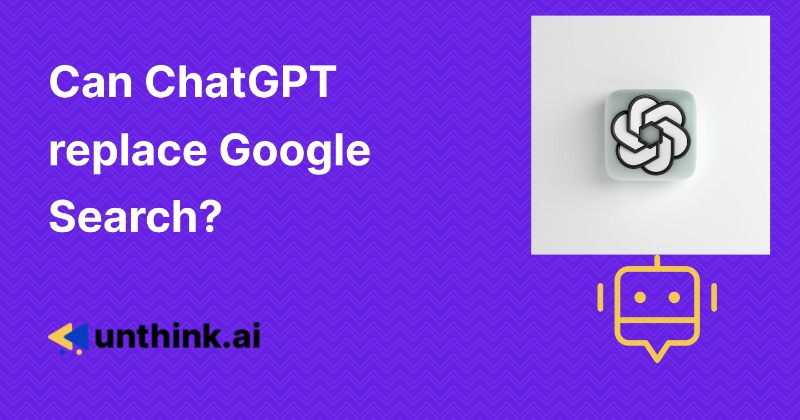
ChatGPT has taken the world by a storm. When a normal non-tech person posted about it on Whatsapp. I realized that it had arrived. ChatGPT is the latest brainchild of OpenAI. OpenAI is an artificial intelligence research company working towards a noble goal of benefiting humanity with friendly AI. It was founded in 2015 and has Sam Altman, Elon Musk , Microsoft, Linkedin founder Reid Hoffman, Peter Thiel and others behind it. Elon Musk did leave the board in 2018 citing conflict of interest with his work at Tesla.
ChatGPT responds like a human and comes up with friendly responses with proper sentences. It is easy and interesting to get information from it especially now because it is not biased with paid ad models.
Many people ask if it will replace Google search.
Now, let's look into a few aspects of Open AI:
- the use case and problem statement of a search engine.
- the model & commercial viability
- the competition
- the future
The use case
So what will it take to be able to fulfill the role of a search engine? People will expect accurate and the latest information to come up to use it as a search engine.
ChatGPT was created by taking billions of data points up to 2021. So as of now, it does not have the latest data. It works great for researching topics that are not time sensitive. It does some hard stuff really well, like suggesting how to fix code, answer science questions, or suggesting fashion outfits.
But let us say you want to know the current weather forecast for your location or find our information about a recent sports match.
You might want to rely on Google for these searches because ChatGPT does not have this kind of real-time information.
The model
ChatGPT uses GPT-3 (Generative Pretrained Transformer 3), a language processing AI model, and it was trained using 300 billion words from the internet, including Wikipedia, and many internet forums. The transformer model enables it to understand the context of complex questions like a human would.
When we look into ChatGPT, the model is massive and needs training with billions of parameters. So, updating it with real time data like recent sports events, for example, will be challenging. Moreover, the energy consumed to train such large language models is humongous. On the other hand, Google already has the very latest data on the internet stored away very efficiently.
There is is famous estimate that the energy consumed to train a GPT-3 model would be more than that required to power a car to drive from the earth to the moon and back. So, clearly, apart from the issue of carbon footprints, the money spent on maintenance is going to be huge.
Also, to perform like a search engine, it needs to be fast and respond to a query in spite of huge traffic. It is going to be very slow compared to the speed at which google search is operating right now.
If there is an intent to make it a Google search alternative, it would not be possible to make it free. As we speak today, there is already a paid model for guaranteed performance. It is possible that even Google did not release its own chat based alternatives because they did not want to jeopardize its traditional Google search which makes money.
Applications using ChatGPT
While we see many individuals and companies talking about applications that they built on ChatGPT, this is misleading, because ChatGPT itself is not available as an API. You have to go to the chatgpt website to use it. Applications that claim to be built on ChatGPT are using Open AI's GPT-3, which was already available as an API a few months back.
The future
Microsoft got an exclusive license to GPT-3, the technology behind OpenAI in 2020. Now they have announced another multi-year multi-billion dollar investment and released Azure OpenAI - with a layer of content filtering added. They plan to embed the functionality into Bing search, Word and other applications. See the announcement.
In the mean time, while Google has been quiet, but we recently head their announcement about "Sparrow", a possible competitor for ChatGPT from DeepMind, an acquisition of Google. They have access to the latest internet data through Google, and 2023 will see even more exciting times with this release.
The future of the way people interact with the internet has changed for ever, and natural human-like interactions will soon be the new normal.
About us
We released our automatic content-creation feature using OpenAI in October 2022, long before ChatGPT was announced!
These are some features of our web3 content creator platform
- Automatically write an e-commerce blog using Open AI.
- Identify products that can match the content using our proprietary AI algorithms.
- Enable the content creator to monetize the content in a web3 community.
- A Voice assistant for shopping - We built a voice assistant which learns the taste and the context of a user with each interaction rather than a dumb transactional robotic response. (See our article about Voice Commerce)
We are excited about how AI is becoming democratized and accessible to everyone.

